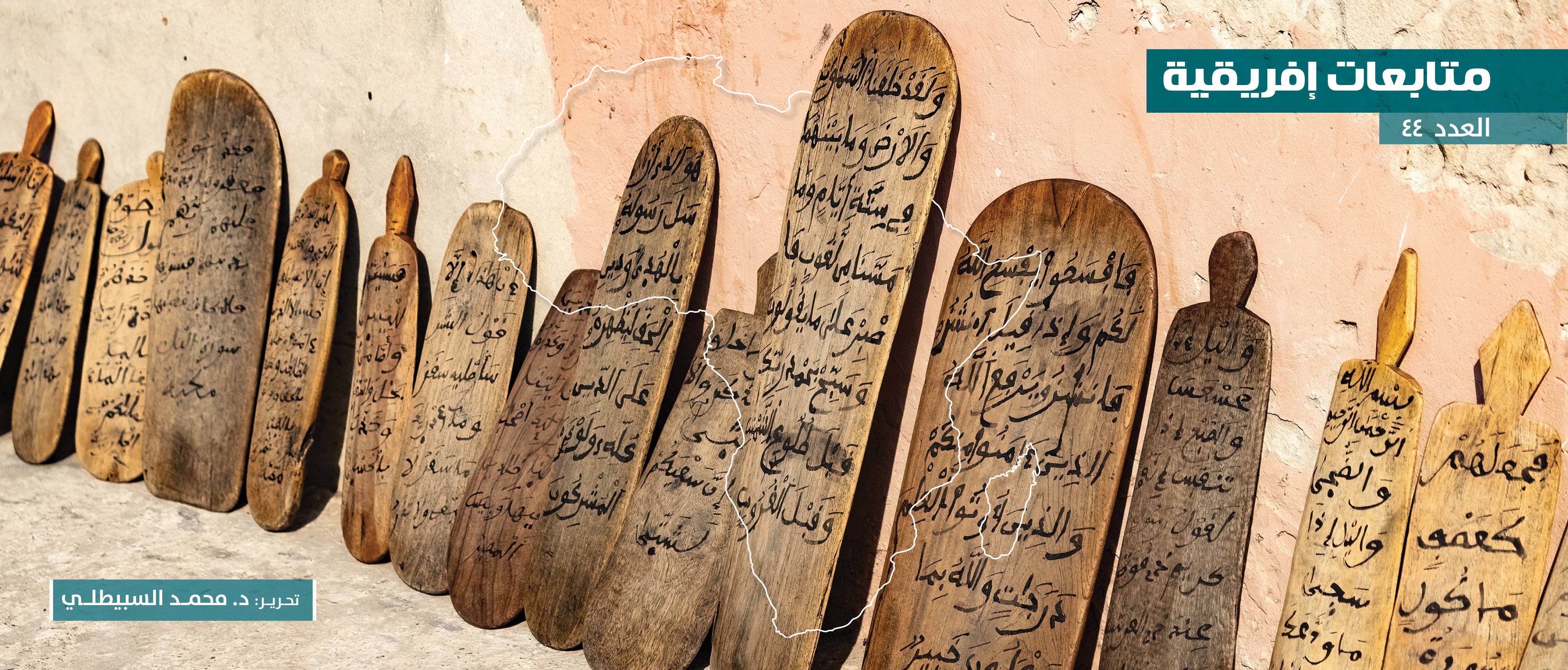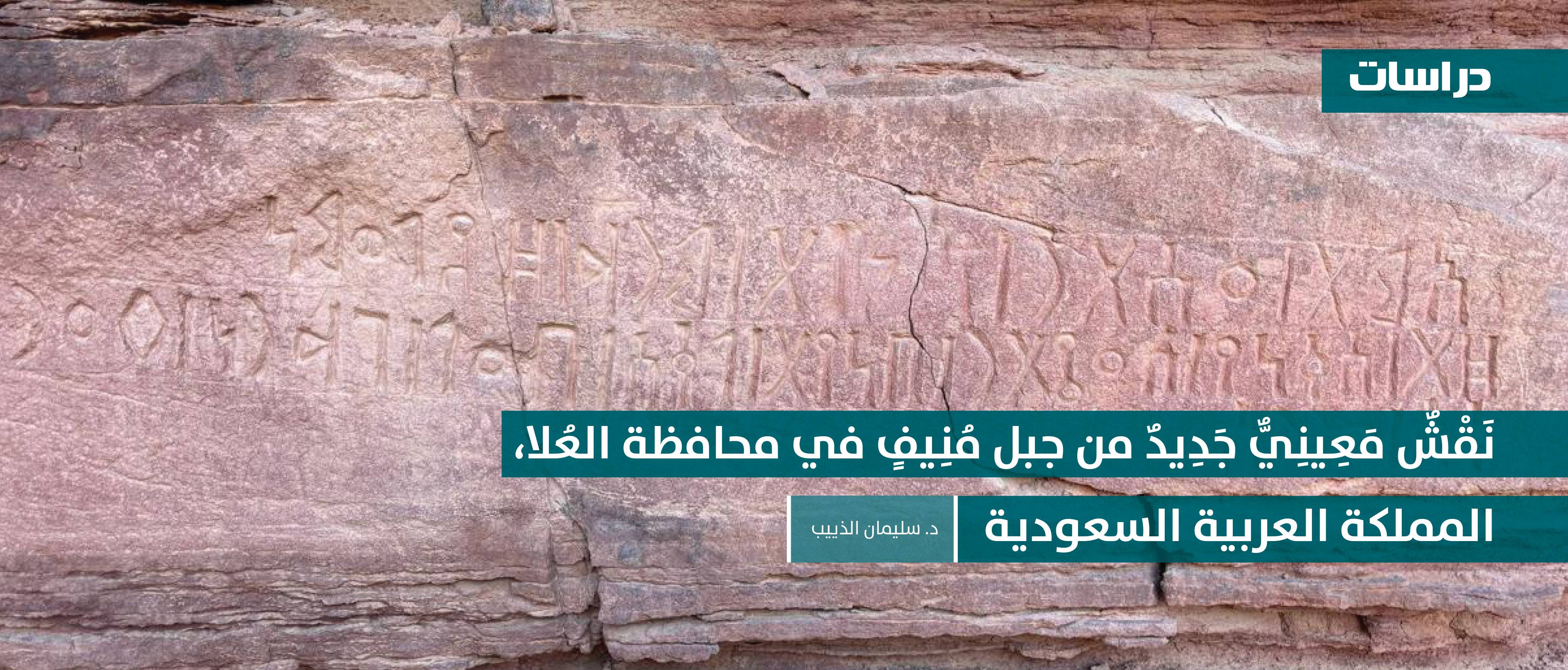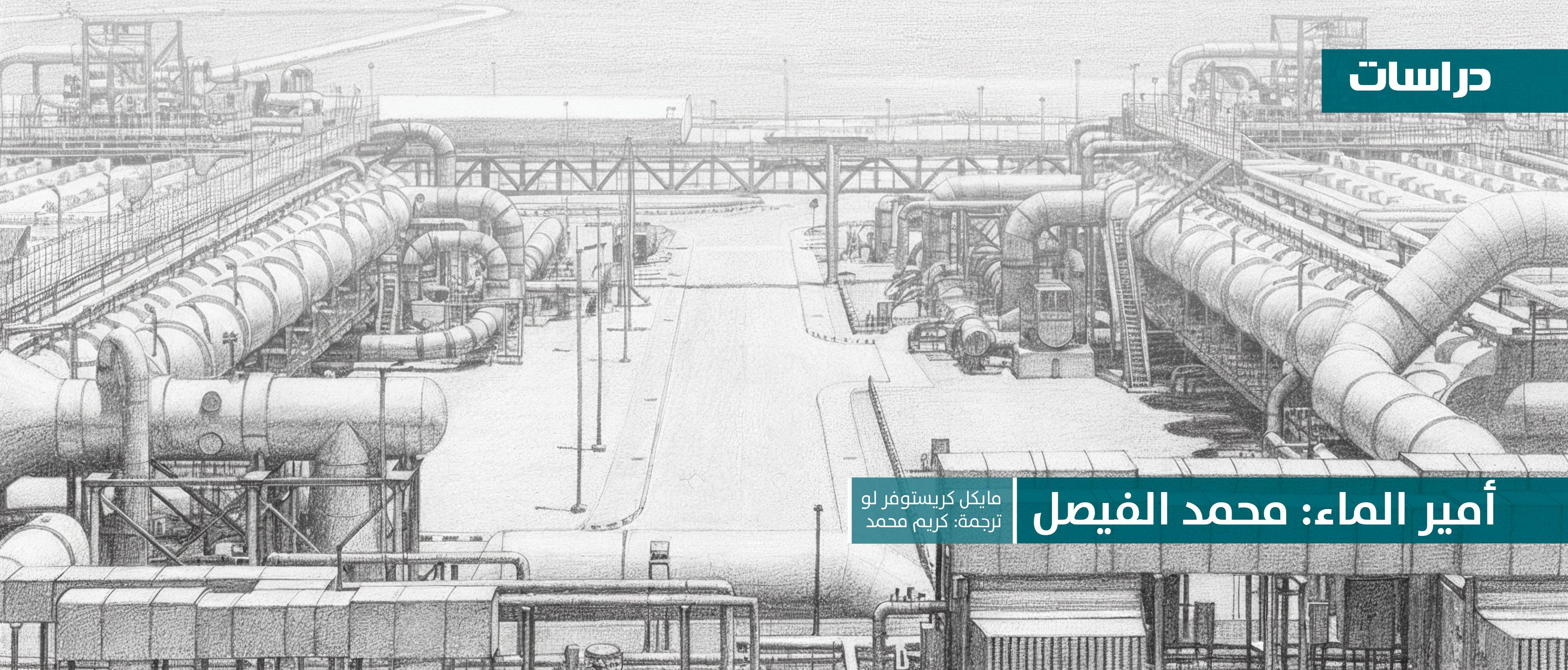الأوراق البحثية

رقم: 89/90
المؤلف: أ.د. عبدالمالك سلاطنية
يأتي الحديث عن هذا الموضوع ضمن فعاليات الندوة الدولية الخاصة بثقافة الصحراء، التي تتناول موضوعًا مهما في تاريخ الصحراء العربية ثقافيا وتراثيا، ومن خلال العمل في هذا الموضوع تدرك من الوهلة الأولى أن العمل في هذا الحقل واسع، يشمل جوانب متعددة من حياة الإنسان، الذي صنع الحضارة عبر التاريخ وفق حالات مناخية وأوضاع اقتصادية ومجتمع محدد المعالم والقيم فرضته متطلبات الحياة من أجل الاستمرار والبقاء. فنسج بذلك نموذجا للحياة، ما زالت آثاره ماثلة إلى يومنا. فالصحراء الجزائرية تتربع على أكثر من مليوني كم ۲، أي ٤ / ٥ من المساحة الكلية للجزائر، مما يعني أن أثر الإنسان كان بها كبيرًا وعميقًا طيلة آلاف السنين، فالمعالم الأثرية المنتشرة عبر مساحات واسعة أنتجت ثقافات اجتماعية متعددة بقيت معالمها إلى يومنا هذا، سواء أكان ما تعلّق منها بالثقافات ال

رقم: 87/88
المؤلف: د. عبدالله المصري ود. مارتينا رينزي
تركز هذه الدراسة على تحليل المنطقة الجنوبية الغربية من شبه الجزيرة العربية، والتي لم تخضع لدراسة شاملة مقارنةً بمناطق أخرى في شبه الجزيرة العربية. ينقسم جنوب غرب شبه الجزيرة العربية سياسيًا في الوقت الراهن إلى أجزاء تتقاسمها كل من المملكة العربية السعودية (عسير ونجران)، واليمن، وجزء صغير من عمان (ظفار). وتشكل صحراء الربع الخالي، المعروفة أيضًا باسم الربع الخالي، حاجزًا جغرافيًا وثقافيًا بين المنطقتين الشمالية والجنوبية.

رقم: 85/86
المؤلف: قاسم بن خلف الرويس
تسعى هذه الورقة من منطلق ثقافي وطني إلى التعريف بأحد علماء الأنثروبولوجيا البارزين، أكاديمي رصين جعل المجتمع ميدانه والصحراء وجهته؛ ليستمطر الذاكرة الشعبية قبل فناء أجيال مرحلة ما قبل النفط، فجمع شتاتًا كاد أن يتلاشى، ثم درسه وفق المناهج العلمية الحديثة؛ ليسبر أعماقه بحساسية عالية، جعلته مرجعًا عالميًّا في هذا الشأن. هي قراءة ممتدة على مدى الخط الزمني لحياة سعد الصويان، تبدأ بالخلفية الشخصية والفكرية، ثم تنتقل إلى التحديات والإنجازات، ثم تُسلِّط الضوء على المسيرة العلمية والبحثية؛ لتصل في النهاية إلى الإرث والتأثير الثقافي لهذه الشخصية.

يتضمن هذا العدد الذي نضعه بين يدي القارئ، مجموعة من الأوراق العلمية، التي تستعرض بعض أوجه التفاعل التاريخي بين شعوب القارة الإفريقية، والثقافة العربية. وقد جرت هذه المثاقفة في مراحل متعددة من التاريخ المشترك، عبر هجرات متقطعة، قامت بها بعض القبائل والجماعات العربية، التي استقرت في المناطق الواقعة بشرق القارة، سواء على السواحل الغربية للبحر الأحمر أو على الضفاف الإفريقية للمحيط الهندي وأسفر التمازج والتواصل المباشر بين العرب والأفارقة، عن نشوء لغات ومجتمعات جديدة، وظهور مدن ذات أنماط عمرانية غنية، ولها فنون وآداب وخصائص ثقافية مميزة، كما نتج عن هذا التفاعل انتشار ظاهرة الاقتراض اللغوي في العديد من اللغات الإفريقية، حتى إن لغات غربي إفريقيا، تكاد لا تخلو من تأثيرات عربية متفاوتة، تبعا لقوة العوامل المؤثرة. وقد امتد هذا التواصل بين ضف
إقرأ المزيد

رقم: 83/84
المؤلف: د. هبة البيتي
هذه الورقة تفترض أن الصحراء لم تكن مساحة جغرافية بالنسبة للثبيتي، بل كانت الصحراء تمشي في قصيدته كأنها كائن حي يتحرّك باحثًا عن نفسه في صوت الشاعر ومنتظرًا رجع الصدى من قصيدته. فعلى الرغم من أن الصحراء كانت تسكن حنايا حروفه لكنها كانت أيضًا تتبعه وتشحذ رمالها خطواته؛ «أتيتُ أركض والصحراء تتبعني، وأحرف الرمل تجري بين خُطواتي» إن عملية خلق تلك الصحراء المتخيلة من قبل الشاعر هي دليل ضمني على إلحاح اغترابه الوجودي، هذا عدا كونها وسيلته المقاومة لذلك الاغتراب والتكيف معه. بمعنى آخر؛ إن الشاعر من خلال قصيدته يحاول جعل الصحراء / صحراءه وطنًا له، لأنه منفي داخله ويحاول إيجاد بديل مُتخيَّل يعوّضه ويُخفّف عنه قسوة اغترابه. تلك الصحراء المتخيلة التي يخلقها الشاعر تصبح أيضًا ملتقى المغتربين ودرعا لهم. يجتمع المغتربون حول صحراء الثبيتي لأنهم يجدون فيها انعكاسًا ورمزًا للغربة الوجودية والتيه الوجداني الذي يعانونه

رقم: 81/82
المؤلف: د. عواض بن محمد القرشي ود. عبدالله بن عمر الزبيدي
مما يلفت الانتباه في ثقافة صحراء الجزيرة العربية ذلك الولع والافتتان بالتشفير والترميز في التواصل الإنساني بشقيه الشفهي وغير الشفهي. حيث نجدهم يلجؤون في بعض السياقات إلى استخدام رموز غير مباشرة في التواصل، وذلك بغرض توجيه رسالة تحمل طلباً أو عتاباً أو تحدياً أو اختباراً أو غيرها من أغراض التواصل الإنساني، فامتناع الضيف، على سبيل المثال، عن شرب فنجان القهوة الأول المقدم له يحمل دلالة وجود أمر يطلبه أو عتاب يوجهه، وفي المقابل فإن ملء الفنجان عن القدر الملائم لأحد الحاضرين أو تجاوزه هو بمنزلة رسالة استنقاص أو عدم تقدير. وكذلك الأمر في بعض عادات تقديم الطعام، هذه وسواها، كلها رموز غير شفهية محملة بالمعاني والتشفير والتلغيز. وكذلك هو الأمر في الفنون الشفهية كالزومالة (الحداية) وشعر القلطة وغيرها. وما يمتاز به شعر القلطة هو فرادته وجماليته التي تجمع القدرة على فك شفرات المعاني وكشف حجب التلغيز ب

يتضمن العددُ الجديدُ من دورية متابعات إفريقية نُخبةً من الأوراق التي تتناول موضوعات: جيوسياسية، وثقافية، وتاريخية، واقتصادية... وبذلك يكون هذا المحتوى قد مَثَّلَ قراءةً شاملةً للقضايا الإفريقية الراهنة، والعلاقات الحضارية بين القارة الإفريقية والعالم العربي.
إقرأ المزيد

رقم: 79/80
المؤلف: د. سليمان الذييب
كُتِبَ هذا النقش الذي عَثَرَ عليه الأستاذ »أحمد بن محمد المسعود« في أثناء تجواله في مزرعة »عبد الرحيم الصقير«، بأسلوب الخط الغائر على إحدى واجهات جبل يعرف محليًّا باسم »زِبْ مُنِيف«، يبعد إلى الشمال من مدينة العلا القديمة »البلدة القديمة« أربعة أكيال. وعكست طريقة كتابته مقدرة كاتبه وتمكنه من العربية الجنوبية. وإذا أخذنا في الحسبان حرف السين الظاهر في بداية الفعل (س ق ن ي)، وفي نهاية الأسماء (ع ر ر س) باعتباره ضميرًا مفردًا غائبًا، يتبين أن لهجة النقش هي المَعينية.
الأمر اللافت الذي دفعنا إلى القول إن الجالية المعينية في دادان تأثرت باللغة المحلية الدادانية أن كاتب النقش استخدم مفردات انتشرت في هذه اللغةِ /

رقم: 77
المؤلف: مايكل كريستوفر لو
من البديهي أن تاريخ المملكة العربية السعودية في القرن العشرين هو مرادف للنفط. وبينما يُنظَر إلى أنابيب النفط والغاز بوصفها شريان الحياة للبِنْية التحتية للمملكة التي شهدت نموًّا متسارعًا، فإن هناك مجموعة أخرى من الأنابيب ومحطات المعالجة ظلّت شبهَ مُغفَلٍ عنها لدى المؤرخين، وهي محطات تحلية المياه. وعلى الرغم من هذا الغياب الظاهري، فقد صارت المملكة العربية السعودية دولةً رائدةً في مجال تحلية المياه؛ أي أنها دولة تعتمد على المياه الـمُحَلّاة، لا مجرد دولة تعتمد على النفط فحسب، ويرى هذا المقال أننا في حاجة أيضًا إلى النظر إلى المملكة بوصفها قوةً عظمى في مجال تحلية المياه أو مملكة المياه المالحة.
إذا كان بإمكان سيرة حياة رجل واحد أن تُفَسِّر هذه السِّمَةَ غيرَ المدروسةِ للدولة والمجتمع السعودييْنِ، فلا بد أن تُذكَر من خلال القصة الأسطو
